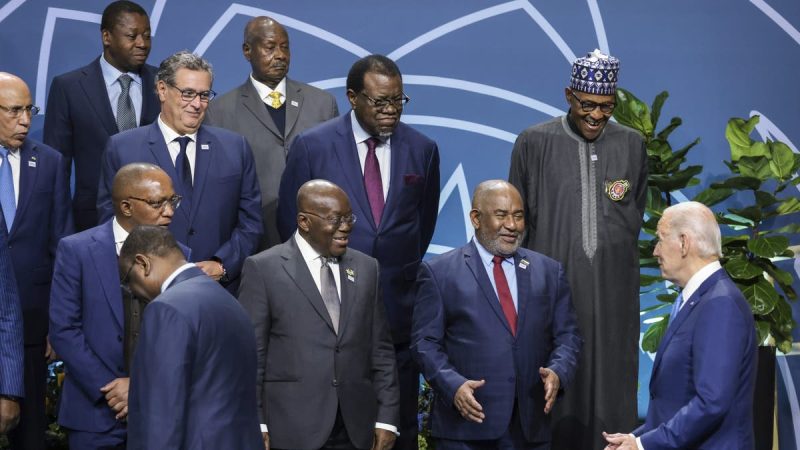
Biden’s African Adventure: Over-promised Policies and China’s Massive Expansion
In recent years, Africa has become a focal point for global powers seeking to expand their influence and economic interests on the continent. Among these powers, China has emerged as a dominant player, making significant investments in infrastructure development and forging economic partnerships with African countries. However, the United States under the Biden administration has also expressed a renewed interest in engaging with Africa, with President Biden recently embarking on a visit to the continent.
Biden’s visit to Africa comes at a crucial time, as many African nations have expressed disappointment with the lack of tangible results from previous U.S. engagement efforts. Despite promises of increased investment and support for development initiatives, many African leaders feel that U.S. policies have fallen short of expectations, leading to a sense of disillusionment among the African populace.
Meanwhile, China’s presence in Africa has been steadily growing, with the Asian giant investing heavily in infrastructure projects such as roads, railways, and ports. China’s Belt and Road Initiative has further solidified its economic ties with African countries, offering them access to much-needed funding for key development projects. In contrast to the U.S., China’s investments have yielded visible results, with many African nations benefiting from improved infrastructure and economic opportunities.
The contrasting approaches of the U.S. and China in Africa highlight the complexities of foreign policy and development cooperation on the continent. While the U.S. has historically focused on promoting democracy and human rights, China’s approach prioritizes economic growth and infrastructure development. This has led to some African nations turning towards China as a more reliable partner for achieving their development goals.
During his visit, President Biden emphasized the importance of fostering stronger ties with African nations and addressing shared challenges such as climate change, security threats, and economic development. Biden’s administration has pledged to increase investment in Africa and work towards strengthening partnerships that benefit both American and African interests.
However, Biden’s visit to Africa also serves as a reminder of the need for the U.S. to deliver on its promises and follow through with concrete actions that benefit African nations. With China’s expanding influence on the continent, the U.S. faces stiff competition in winning the hearts and minds of African leaders and citizens.
As Africa continues to navigate the complexities of global power dynamics, the continent remains a key battleground for influence between the U.S. and China. The success of Biden’s visit and the future of U.S.-Africa relations will depend on the ability of the Biden administration to deliver on its commitments and engage meaningfully with African nations to foster shared prosperity and development.